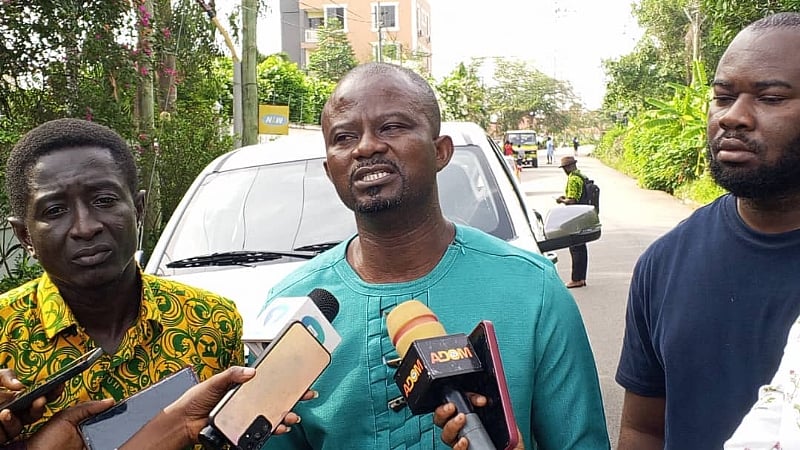The Asante Youth Association (AYA) has voiced its strong disapproval of the recent dismissal of Professor Okyere Addai Mensah as Chief Executive Officer of the Komfo Anokye Teaching Hospital (KATH), culminating in a threat of organized protests. The youth group, deeply invested in the hospital’s performance and its impact on the Ashanti Region, view Professor Mensah’s removal as a detrimental step, potentially jeopardizing the gains made under his leadership. They are particularly concerned about the fate of the ‘Heal Komfo Anokye Project’, a successful initiative spearheaded by Professor Mensah, which has demonstrably elevated the quality of healthcare services offered by the hospital. The AYA believes that replacing him with Dr. Paa Kwesi Baidoo, while he may be a respected medical professional, disrupts the positive trajectory established under Professor Mensah’s tenure. Their call to action underscores the perceived gravity of the situation and the importance they place on maintaining the momentum achieved under the previous leadership.
The AYA’s discontent stems from their belief that Professor Mensah’s removal was unwarranted, especially given his demonstrable achievements in improving the hospital’s performance. They cite the ‘Heal Komfo Anokye Project’ as a prime example of his effective leadership. This project, which garnered significant acclaim, focused on renovating and upgrading the hospital’s facilities, enhancing service delivery, and improving overall patient care. The AYA argues that interrupting this progress by replacing Professor Mensah risks undermining the project’s long-term success and the continued improvement of healthcare services within the Ashanti Region. They believe that the decision to remove him was not based on performance but on other factors, which they perceive as detrimental to the interests of the hospital and the community it serves.
The youth association’s call for Asantehene’s intervention highlights the cultural significance of KATH within the Ashanti Region and the traditional leader’s influence in regional affairs. Recognizing the Asantehene’s historical role as a protector and advocate for the well-being of the Ashanti people, the AYA hopes his intervention will reinstate Professor Mensah and preserve the positive trajectory of the hospital’s development. This appeal underscores the deep respect the community holds for the Asantehene and their trust in his ability to resolve critical issues affecting the region, particularly in areas as vital as healthcare. The AYA views the Asantehene’s potential involvement not only as a means of reinstating effective leadership but also as a way to reaffirm the community’s commitment to the continued improvement of KATH.
The AYA’s threatened march to KATH signals their willingness to escalate their protest if their demands are not met. This proposed action is a public demonstration of their dissatisfaction and a direct appeal to both governmental authorities and the wider community. The choice to march to the hospital itself underscores the symbolic nature of their protest, emphasizing the impact this decision has on the very people who rely on KATH for their healthcare needs. This potential act of civil disobedience signifies their determination to have their voices heard and their concerns addressed. The threat of a march signifies the seriousness of their intent and the importance they attach to the continued development of KATH under what they consider to be capable and dedicated leadership.
While Dr. Paa Kwesi Baidoo’s credentials as the president of the Ghana Medical Association in the Ashanti Region are acknowledged, the AYA’s focus remains on the disruption they see his appointment causing. Their argument isn’t necessarily against Dr. Baidoo’s capabilities, but rather emphasizes the importance of continuity under Professor Mensah’s leadership, especially given his successful track record. The AYA contends that replacing him at this critical juncture, regardless of the new CEO’s qualifications, jeopardizes the progress achieved under the ‘Heal Komfo Anokye Project’ and could potentially hinder the hospital’s further development. The AYA’s concern is not about the individual qualifications of the incoming CEO, but about the larger implications of changing leadership amidst ongoing and successful initiatives.
The AYA’s stance reflects a broader concern about the stability and effectiveness of public institutions within Ghana. Their protest transcends the specific issue of the CEO’s removal and highlights a deeper concern for good governance and accountability. The swift and seemingly unexplained removal of a successful leader resonates within a larger conversation about the need for transparency and consistency in the management of public institutions. The AYA’s actions underscore the importance of consistent progress and the community’s right to question decisions that appear to undermine the betterment of essential public services. Their advocacy for KATH reflects a broader desire for effective and accountable leadership within the public sector.


